Buy 20ft ISO Tank Container Online
Tank Container & ISO Tank Container
20ft Tank Container
The 20ft Tank Container is designed to safely house liquids, gasses and powder bulk during storage or transportation. We offer food grade and chemical grade tank containers
ISO tank container (20ft)
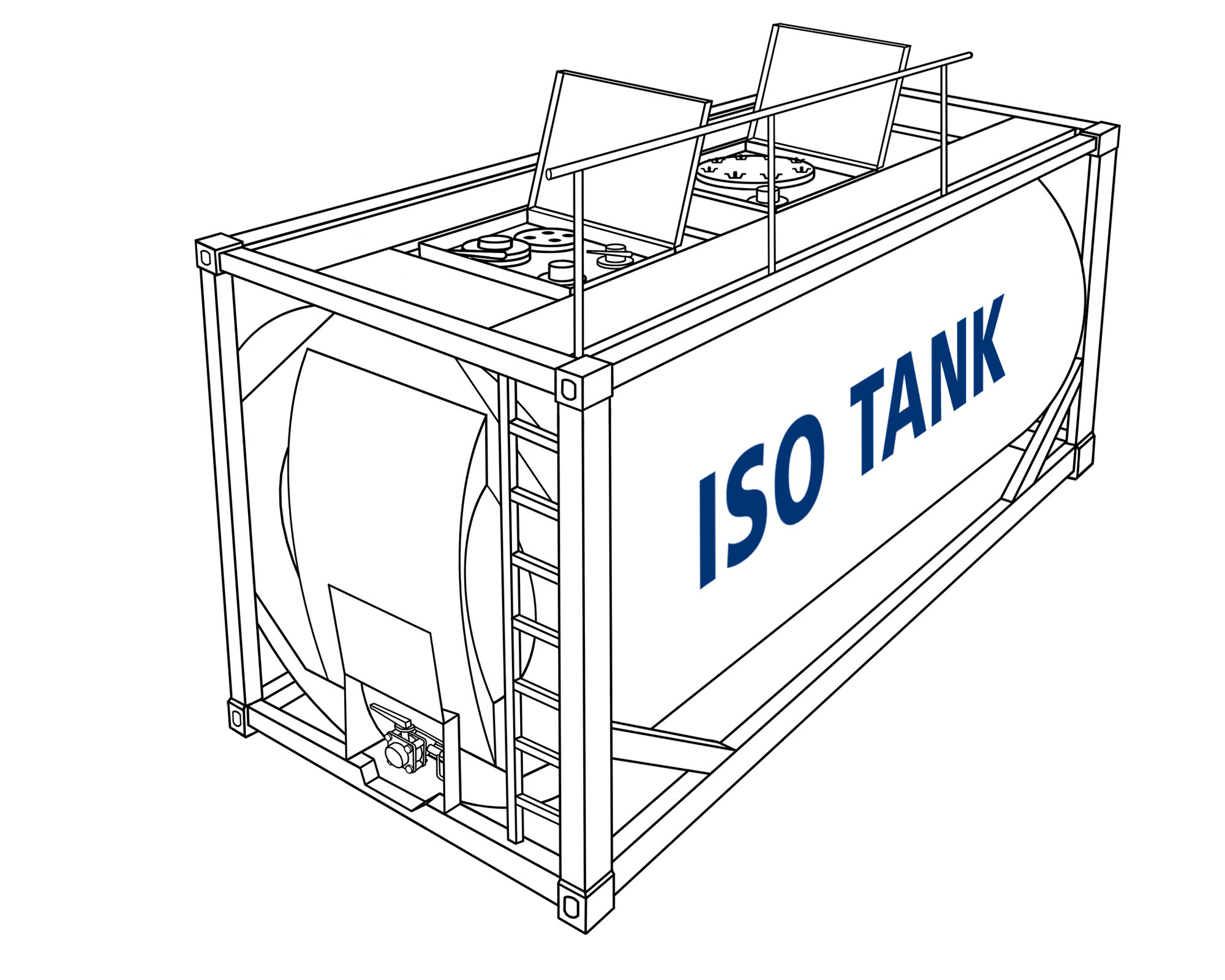
For liquid food stuffs, chemicals, water and other liquids
Capacity range 14.000 – 26.000 liter
Suitable for storage and transport

Buy 20ft ISO Tank Containers Online

Capacities: 24.000 – 26.000 Liter
Approvals: IMO/UN Portable T7 – T14, ADR/RID, US DOT, CSC
Products: Food, Chemical, Non-Chemical
Application: Transport, Storage
Locations: Europe, Asia, USA
Tank containers are barrel-shaped vessels serving multi-purposes and use for the bulk transportation of the following materials
Below are the types of liquids can be carried in ISO tank containers.
1. Molasses2. Milk and other dairy products. Alcoholic and Non-Alcoholic Beverages4. Liquefied sugars5. Hydrogen Peroxide6. Sulfur Acid / Nitric Acid7. Chemicals / Solvents8. Liquid Food Products9. Heating oil / Vegetable oils10. Gasoline / Diesel / Liquefied petroleum gas11. Liquid Resins
A tank container is suitable for the transportation of materials whether they are hazardous or non-hazardous.
New tank
- Best available condition
- The container is unused and is delivered directly to you from the factory
- Opportunity to influence the build, equipment, and appearance when placing an order
- The delivery time for new containers ranges from 6 to 30 days, depending on factory capacity and the equipment requested
Technically acceptable
- Used tank container
- The tank has been subjected to an water test
- 2.5-year test certificate
- All connections and valves have been tested for functionality
- Suitable for freight use
- No external refurbishment
Fully refurbished
- Used tank container
- The tank has been subjected to an water test
- 2.5-year test certificate
- All connections and valves have been tested for functionality
- Suitable for freight use
- The body has been repainted
- The container coating has been refurbished and repainted
- Externally resembling a new container
T11 | 26,000 literPCVU260107
IMO 2 | 26,000 liter ATVU026001
IMO 0 | 23,000 liter ATVU123000
T11 | 23,000 liter ATVU123002
IMO 0 | 25,000 literATVU025401
T11 | 25,000 literPCVU2512335
T11 | 25,000 literPCVU2520270
T11 | 24,000 literATVU124018
T11 | 24,000 liter ATVU124014
T11 | 25,000 liter PCVU250113
IMO 2 | 26,000 literATVU026000
T11 | 25,000 literPCVU254003
T11 | 25,000 literPCVU2512361
New ISO tank container
IMO 2 | 23,000 liter ATVU123001
T11 | 24,000 liter ATVU124000
T11 | 25,000 literPVCU257009
T11 | 25,000 literATVU124030
T11 | 25,000 literPCVU2512551
What does “handling fee” mean?
Every time a container, whether it is a container for lease or sale, is moved around a depot, it requires a lift. The handling fee is a one-time cost that covers moving the container around in the depot areas. The fee is only applicable when you lease a container or have a one-way deal with us. We never charge you a handling fee when you buy a container outright, so there are no hidden costs.
23FT Swap body tank
20FT TDI ISO Tank
20FT Diesel Tank
20FT Reefer Tank
Contact us for more information
If you are interested in buying a 20FT ISO Tank or if you need more information, don’t hesitate to contact us. You can contact us by sending an email.
These containers are made of stainless steel and are surrounded by various types of protective layers. Based on the cargo type, different skins can be used. The container has a manhole on the top along with at least one valve and another valve on the bottom. They are shaped like a cylinder. Since ISO tanks are built based on ISO standards, the frame in which the tank sits in measures about 6 meters long, 2.4 meters wide, and between 2.4 – 2.5 meters high and varies in size and type and can carry between 21,000 and 40,000 liters of liquid.

- Price On request
- Capacity 14000 – 26000 litres
- Tare 3800 KG
- Usage Chemical & Foodgrade liquids
- Max. weight 36000 KG
- Container type Tankcontainer
- Size 20ft
- Compartments 1
- Heating system Steam Heating
- Cladding type 1.8 mm GRP
- Steel thickness 4.4 mm
- Test pressure 6.0 Bar
- Work pressure 4.0 Bar
- Airline 1,5″ BSP Airline Ball Valve
- Insulation 50 mm Glaswool
- Discharge type Bottom / Top
- Baffles Possible
- Material Stainless steel 316
- IMO type 1
- Certificate ISO/ADR/IMO/CSC
Construction

It is made up of stainless steel covered and insulated with a layer of either polyurethane or aluminum.
Tanks made of stainless steel typically have better usage, i.e., approximately two years of shipping corrosive materials than those made of aluminum.
What do the different container delivery options mean?
It does not matter if you buy or lease a container; MC Containers can deliver it to you. We use a variety of container delivery methods, including the following container trucking methods:
- Chassis / CPT (Carriage Paid To)
- On ground / DAP (Delivered At Place)
- FOT DEPOT / FCA (Free Carrier)
Chassis delivery means that your new, used or modified container will be delivered to the destination on a container chassis. However, this service does not include removing it from the chassis. If you decide to buy a container, it is your responsibility to organize a crane or another piece of machinery to offload it. This is the most common container delivery method in Europe due to the better availability of trucks and cost-effective rates.
On On-ground deliveries are done with a truck that can drop the container to the ground with it’s own equipment. Normally, the container delivery is done using a side loader or a truck equipped with a crane. The standard delivery price includes 30-45 min of unloading time per container and any extra time is billed at an hourly rate. If you don’t have a crane available or cannot organize one then this is the best and only option for you.
FOT DEPOT means Free on Truck in depot. With this container delivery method, the buyer is responsible for organizing a pickup from the chosen container depot. The seller will organize a lift to the chassis in the container depot, so you will not need a crane or side loader for the pickup.
Types and Sizes
For convenient, quick and secure handling of the material, all the containers have the same sizes, with precisely stable frame-structure around them and common links for the handling devices to connect properly.
There is a wide range of tank containers. The type and other adjustments, including valves loading fittings and heating system depend on what they need to be used for.
Different fitments, such as valves stacking fittings and warming frameworks, vary as per the end client’s prerequisites.
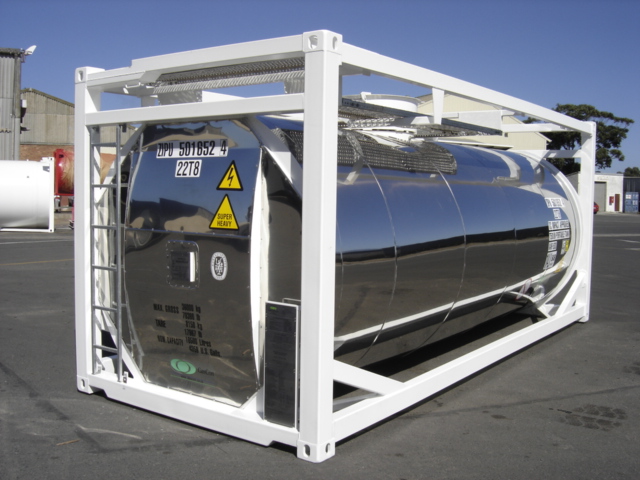
What are the types of Tank Containers?
Various tank containers are depending on the usage. These tanks have various applications which are explained in the table below:
Everything you need to know about the new build 20ft tank
Thanks to the innovative design of this new build bitumen tank is suited for all bitumen grades and is a very safe and efficient solution for your transportation.This flame tube tank is very suitable for intermodal transport per ship, train and truck.
Flame Tubes
The flame tube system can reach up to a temperature -20/+230 °C and is certified by Lloyds Register and compatible with IMO/ADR/RID/USDOT regulations.The IMO2 / T3 / L2.65BN codes will be applicable.
Top
Temperature
A new temperature meter is installed which can indicate a temperature up to 250 Degrees Celsius.
Rear side
Top of the bitumen tank
Top
Burners & Cargo
Delivery
Because bitumen tanks are rebuild from standard ISO tanks we can supply these units fast and unlimited from our depot
| Container Type | Usage |
| Fuel tank | For transporting gases. |
| Storehouse tank | To ship grains and powders |
| Reefer tank | This has the capacity to cool the item to be shipped |
| Food-grade tank | It is a standard tank container which can only ship food items |
| Swap body tank | Swap body tank normally has a bigger cubic limit than standard ISO containers making them ideal for moving extremely lightweight cargoes. |
| Baffle Tanks | Warming frameworks including steam, warm water and thermostatically controlled electrical warming or cooling can be included in this tank container. |
| Lined Tanks | They are intended for the transport of both pure or exceptionally destructive items. This sort of tank is lined and have extra security frameworks. |
| Heated Tanks | To ship items that must be kept hot or warm during the transport. |
Also Read

| Open Top Container | Hard Top Container |
| Platform Container | Insulated Shipping |
| Flat Rack Container | Pallet Wide Containers |
| Intermediate Bulk Container | Reefer Container |
| Ventilated Container | Dry Container |
Uses of Tank Container

A tank container is used for the storage or bulk transportation of liquids, chemicals or food items including:
- Groceries
- Wines and Spirits
- Organic product juices
- Sweet Oils
- Synthetics
- Fills
- Harmful substances
- Gases
The items to be transported are labelled under IMO. IMO types refer to the grouping for dangerous goods. The tank containers can be used to ship the items of the following classes.

Below are some of the benefits of ISO tank containers.
1. ISO tank containers are a reliable, cost-effective (depending on the product being shipped) and definitely safe way of transporting bulk liquids.2. ISO tanks are designed to meet specific criteria according to the substance they will be carrying.3. Because of the above, ISO tanks are very reliable and can withstand extreme pressure and damage.4. ISO tanks are highly unlikely to leak and do not require additional packaging materials for cargo.5. ISO tanks maintain a specific temperature for temperature-sensitive cargo and can be transported by land or ocean.
| IMO Type | Class | Flashpoint of materials | Type of materials | Tank type |
| IMO Type 1 | 1,3-9 | Under 0°C | explosives, combustible fluids, destructive and harmful substances. | Hazardous Tanks |
| IMO Type 2 | 3 | 0 – 61°C | flammable fluids incorporate diesel and cooking oils. | Low Hazardous Tanks |
| IMO Type 5 | 2 | non-refrigerated condensed gases | Gas Tanks |
For reference, IMO represents the International Maritime Dangerous Goods Code.
Why Go for Tank Container?
They have multiple benefits and are
- More productive than utilizing more small drums.
- simple to ship
- simple and brisk load and unload load through rooftop lids and valves.
Using a Tank Container disposes of the dangers in relocating or moving liquids from one vessel onto the next. This gives a financially savvy, secure and very protected suitable method of shipment.
After shipping, the tank container is moved to a cleaning terminal preparing it for the next cargo.

ISO Tank Container
ISO tanks are cost-effective as they can place and effectively transport less than shipload or truckload materials with much less shipping and handling cost. They can generally be stacked in 90mins whereas drums require a few hours.
Moreover, the freight can be easily carried by truck to the railroad, from the train to transport deck and ISO tanks can also be shipped via air.
Like other container types, ISO tanks can also be stacked. Inter-modal containers Ltd. permit two ISO tanks to be shipped on the well with two more tanks loaded on top. This technique allows thousands of gallons of liquid to be shipped in much less time.
The ISO tank can accommodate around 4 thousand gallons much more than the previous standard-sized methods involving an IBC tank that could only place at around 3 thousand gallons each or 55-gallon drums.
24,000L ISO Tank Container T11
This 20ft ISO Tank Container is steam heated and insulated, making it perfect for storing liquids that need to be kept at a regulated temperature during transit.
Key Features
- ISO certified for shipping
- Hire, sale or modification available
- T11 ISO Tank size also available
- Worldwide availability24,000L ISO Tank Container Specifications
All specifications are indicative. Individual container’s dimensions may differ.
Feature
Specification

Types and sizes:
All ISO holders require to adjust to guidelines, for example, size, strength, and reliability. ISO tank containers have dimensions and features set according to the principles of the International Organization for Standardization.
The ISO Tank Container permits the shipping of a wide range of items. From edible fluids and non-hazardous liquids to shipping dangerous materials including erosive and explosive materials, toxins, and flammables.
ISO TANK CONTAINER 20FT / 1CC
20FT ISO TANK CONTAINER
ISO tank container is equipped with:
Wave breakers
Manhole DN500
Footbridges and protective roof
Stainless steel cabinet containing:
Closing mechanism 2″ drain/refill of liquid phase
Closing mechanism 2″ drain/refill of gaseous phase designed to equalize
the pressure in the tank during filling and discharge of vapour loads
Safety valves, level gauge with a drainage device with three shut-off valves,
pressure gauge.
Tube leading to the tank bottom to ensure the complete drainage of liquid cargo.
ISO tank containers are designed for:
safe transportation of liquefied petroleum gas by road,
rail, river and sea. Suitable for both domestic and
international transport;
filling, draining and temporary storage or backup
storage of LPG for different technologies.
Container provides full inviolability and integrity during
delivery and temporary storage of cargo. It has a solid
construction, ensuring its multiple use.
Container has a fixed structure, ensuring its multiple usage, it
is equipped with corner brackets, designed for loading,
unloading, stacking and fastening
Types of ISO Tank Containers:
UN assigned the items that are appropriate for transportation inside a tank container with an extra ‘T’ code in the table, and this shows the sort of tank that should be utilized for shipping it.
Based on the usage, the following are the types of ISO Tank containers.
| Container Type | Usage |
| Rubber lined ISO tank | To ship corrosive based synthetic compounds |
| T1 ISO tank | For shipping wine and light fluids |
| T4 ISO tank | To transport non-perilous eatable and non-consumable oils |
| T11 ISO tank | To ship non-dangerous synthetics |
| T14 ISO tank holder | To ship dangerous synthetics and acids like HCl and zinc chloride |
| T50 ISO tank | To transport LPG and alkali gas |
| T75 ISO tank | For moving Cryogenic fluids |
T Code System Classifications for ISO Tank Containers
The IMO classifications for ISO Tank Containers has been replaced by the ‘T’ code system.
The T-Code system specifies the test pressure of each type of tank container, its shell thickness, the pressure relief set-up and the bottom and top outlet arrangement. T-Code instructions apply to dangerous goods in classes 1 and 3 through 9. Class 2.
The T-Code system for tank containers was introduced in 2001. The T-Code system identifies tank containers from T1 through T22 and identifies the type of cargoes each container is designed to carry.
ISO tank containers have to be manufactured in accordance with strict international codes for worldwide carriage of by liquids whether by land or sea.
Whilst the following isn’t a complete listing of the IMO types, it provides an indication of the original system of classification.
IMO Type 1 – Hazardous Tanks – approved for transportation of substances of Class 1 and Classes 3 through 9 where the liquids have a flashpoint of less than 0°C. Some examples of the types of liquids include explosives, flammable liquids, corrosive and toxic substances.
IMO Type 2 – Low Hazardous Tanks – approved for transportation of Class 3 substances that have a flashpoint of 0 – 61°C. Some examples of combustible liquids include diesel and cooking oils.
IMO Type 5 – Gas Tanks – approved for transport of non-refrigerated liquefied gases of Class 2.
For reference, IMO stands for International Maritime Dangerous Goods Code.
T Code System for ISO Tank Containers and specifications:
| T-Code | Minimum Test Pressure (bar) | Minimum Shell Thickness | Pressure-Relief Requirements | Bottom Opening Requirements |
|---|---|---|---|---|
| T1 | 1.5 | > or = 6mm | normal | 2 shut-off devices (Int + Ext) |
| T2 | 1.5 | > or = 6mm | normal | 3 shut-off devices (Int + Ext + cap/blank) |
| T3 | 2.65 | > or = 6mm | normal | 2 shut-off devices (Int + Ext) |
| T4 | 2.65 | > or = 6mm | normal | 3 shut-off devices (Int + Ext + cap/blank) |
| T5 | 2.65 | > or = 6mm | normal + rupture disc | Not Allowed |
| T6 | 4 | > or = 6mm | normal | 2 shut-off devices (Int + Ext) |
| T7 | 4 | > or = 6mm | normal | 3 shut-off devices (Int + Ext + cap/blank) |
| T8 | 4 | > or = 6mm | normal | Not Allowed |
| T9 | 4 | 6mm | normal | Not Allowed |
| T10 | 4 | 6mm | normal + rupture disc | Not Allowed |
| T11 | 6 | > or = 6mm | normal | 3 shut-off devices (Int + Ext + cap/blank) |
| T12 | 6 | > or = 6mm | normal + rupture disc | 3 shut-off devices (Int + Ext + cap/blank) |
| T13 | 6 | 6mm | normal | Not Allowed |
| T14 | 6 | 6mm | normal + rupture disc | Not Allowed |
| T15 | 10 | >or = 6mm | normal | 3 shut-off devices (Int + Ext + cap/blank) |
| T16 | 10 | > or = 6mm | normal + rupture disc | <3 shut-off devices (Int + Ext + cap/blank)/td> |
| T17 | 10 | 6mm | normal | 3 shut-off devices (Int + Ext + cap/blank) |
| T18 | 10 | 6mm | normal + rupture disc | Not Allowed |
| T19 | 10 | 6mm | normal + rupture disc | 3 shut-off devices (Int + Ext + cap/blank) |
| T20 | 10 | 8mm | normal + rupture disc | Not Allowed |
| T21 | 10 | 10mm | normal | Not Allowed |
| T22 | 10 | 10mm | normal + rupture disc | Not Allowed |
In addition to the above types of ISO tank container, there are 2 others, namely, a T50 and a T70.
The T50 is a gas tank and has a minimum test pressure of 57.6 bar. Under the IMO system, this was classified IMO5.
The T70 is a cryogenic tank container designed for carrying liquefied gases. Under the IMO system, this was classified IMO7.
How Can use ISO tank Container to manage our cargo effectively?
These tank containers are tough. Pressure load tests are played out each time a container is unloaded. As the ISO tank containers ship all types of hazardous or non-hazardous materials, they need to be certified and examined.
How to load materials?
You can load and unload a tank container from the top and the base by connecting the hoses to the valves. There are a vent and one valve on the top of a standard tank vessel, and there is a valve at the base.
The ISO frame makes these tank containers dispatched with Inter-modal containers Ltd. delivery choices that incorporate container ships, rail lines and trucks.
Effective use ISO Tanks
All in all, tank containers, at any rate, should always be 80% full, to prevent dangerous flooding of fluids during the transit. You can’t fill them more than 95%; otherwise, there will be no space to consider thermal expansion.
They can transport a number of hazardous and non-hazardous materials, including:
- Molasses
- Milk and other dairy items
- Alcoholic and Non-Alcoholic Beverages
- Condensed sugars
- Hydrogen Peroxide
- Sulfur Acid/Nitric Acid
- Synthetic compounds/Solvents
- Fluid Food Products
- Warming oil/Vegetable oils
- Gas/Diesel/Liquefied petrol gas
Dimensions of Tank and ISO Tank Containers
Around 95% of tank containers have 20ft dimensions despite the fact that they come in other sizes, including 10ft, 30ft, 40ft, and 45ft containers.
Standard ISO Tank Container Specifications
| Capacity | Gross Weight | Tare Weight | Payload | Steam Heating Coil | Max. Cargo Temp. | Test Pressure | Working Pressure |
| 21,000L | 36,000kg | 3,650kg | 32,350kg | 8m² | 120°C | 6.00 BAR | 4.00 BAR |
| 24,000L | 36,000kg | 3.900kg | 32,100kg | 8m² | 120°C | 6.00 BAR | 4.00 BAR |
| 25,000L | 36,000kg | 3,730kg | 32,270kg | 8m² | 130°C | 6.00 BAR | 4.00 BAR |
| 26,000L | 36,000kg | 4,060kg | 31,940kg | 8m² | 130°C | 6.00 BAR | 4.00 BAR |
20ft Standard Container
Dimensions
| Length | Width | Height | Door Width | Door Height |
| 6.058 m | 2.438 m | 2.59 m | 0.000 m | 0.000 m |
Specifications
| Tare Weight | Max. Cargo Weight | Max. Payload Weight |
| 4190 Kgs | 30,480kgs | 26, 290 kg |
40ft. tank Container
Dimensions
| Length | Width | Height | Door Width | Door Height |
| 12.192m | 2.438 m | 2.62 m | 0.000 m | 0.000 m |
Specifications
| Tare Weight | Max. Cargo Weight | Max. Payload Weight |
| 11,800 Kgs | 36,000kgs | 22, 200 kg |
45ft. tank Container
Dimensions:
| Length | Width | Height | Door Width | Door Height |
| 13.716m | 2.438 m | 2.62 m | 0.000 m | 0.000 m |
Specifications
| Tare Weight | Volume L | Max. Payload Weight |
| 16,370 Kgs | 54,120 L | 19,630kg |
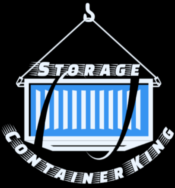


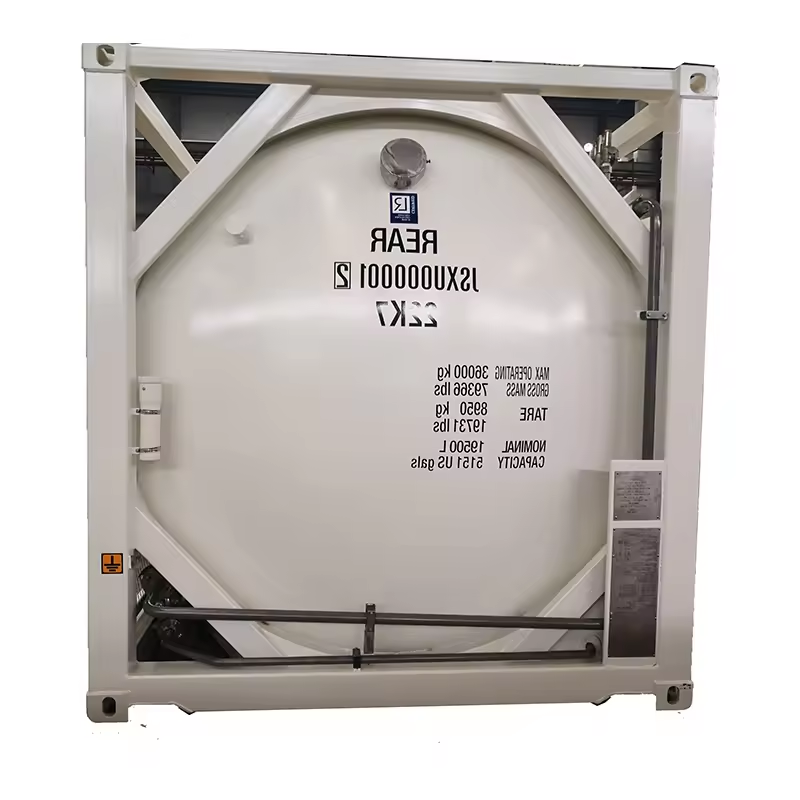


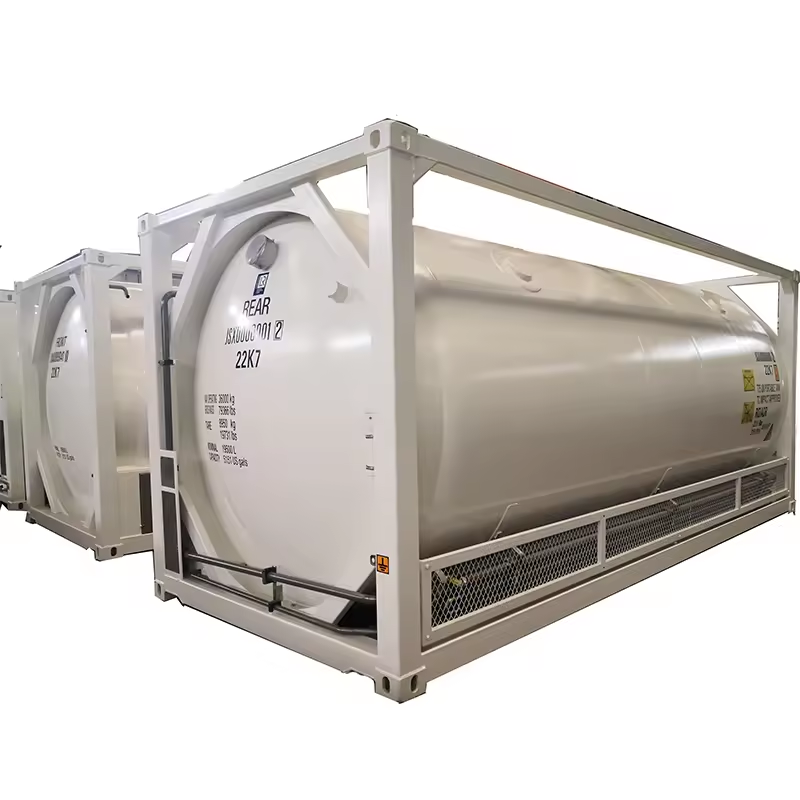

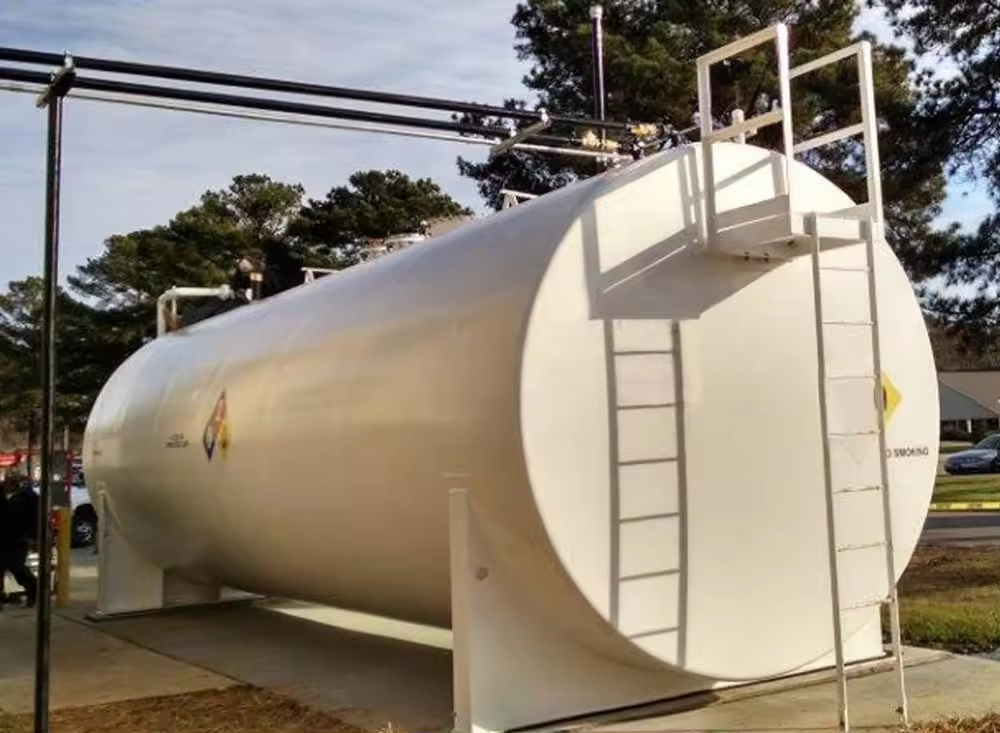
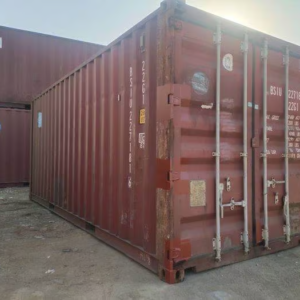
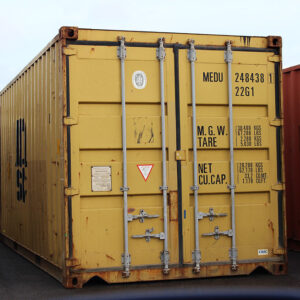
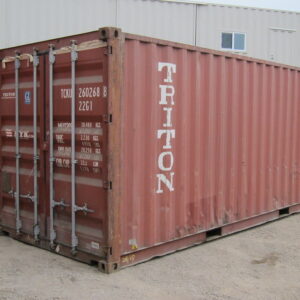
Reviews
There are no reviews yet.